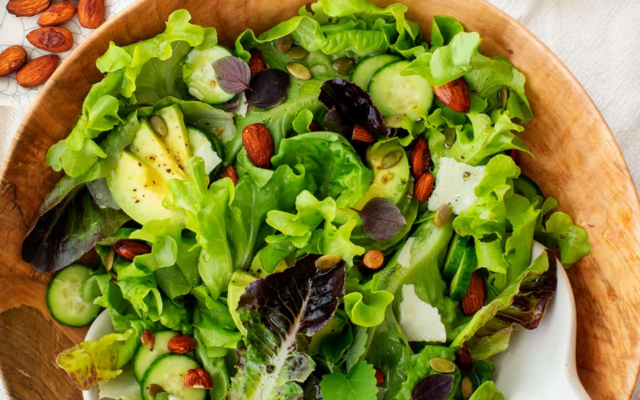Weight loss with vegetables

How to choose vegetables for healthy weight loss
Salad greens
Spinach and other leafy greens are excellent for weight loss, for several reasons. For starters, most greens provide a lot of protein per calorie. Plus, they’re extremely low in net carbs and high in fiber, which can help you feel full.
Some greens contain more fiber than net carbs!
Finally, they are versatile, easy to prepare, and widely available. You can, of course, eat greens in salads, such as our Spicy shrimp salad. Another great option is using lettuce to wrap a burger or meat, like this exotic Keto Thai chicken lettuce wrap
Cruciferous vegetables
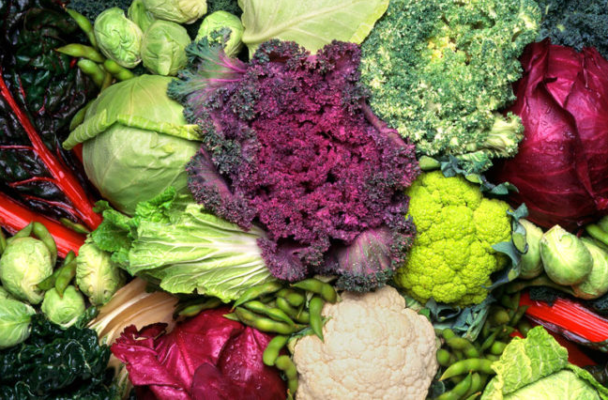
Cruciferous, or Brassica, vegetables include broccoli, cauliflower, kale, cabbage, and Brussels sprouts. When chopped or cooked, these vegetables release compounds that have a familiar and strong sulfur aroma. Other cruciferous vegetables are less odorous, such as bok choy, radishes, turnip greens, and collard greens.
All Brassica vegetables are low in calories and carbs, making them a great choice for any diet. Even if you’re a strict keto eater, you can have a cup or more per day and stay well within your carb limit. Cooking cruciferous vegetables enhances their taste and texture, especially if you add a little butter or creamy sauce, as we’ve done in our Keto cauliflower chicken Alfredo recipe.
“Fruit” vegetables
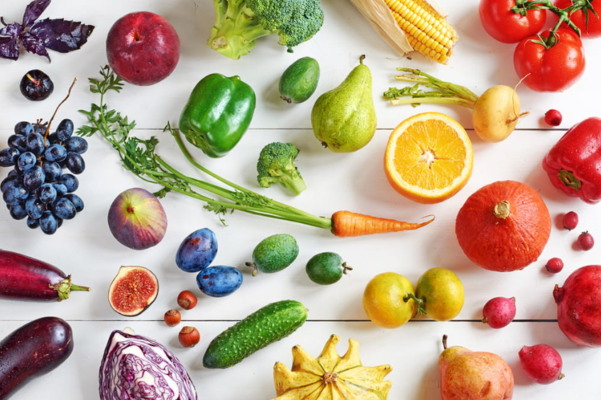
The non-starchy vegetables in this group are technically low-sugar fruits. However, they are not sweet, and they’re often consumed in salads or cooked, like vegetables. So, most people consider them to be vegetables.
While they generally contain less protein per calorie than many leafy greens and cruciferous vegetables, these plants are still a great option for all types of diets due to their low carb and calorie counts.
Enjoy them cooked or raw, depending on your preferences. For example, cooked zucchini is featured in our Keto chicken zoodle al Limone recipe, while raw tomatoes star in our Prosciutto-wrapped mozzarella sticks with tomato basil salad
Best Vegetables For Weight Loss
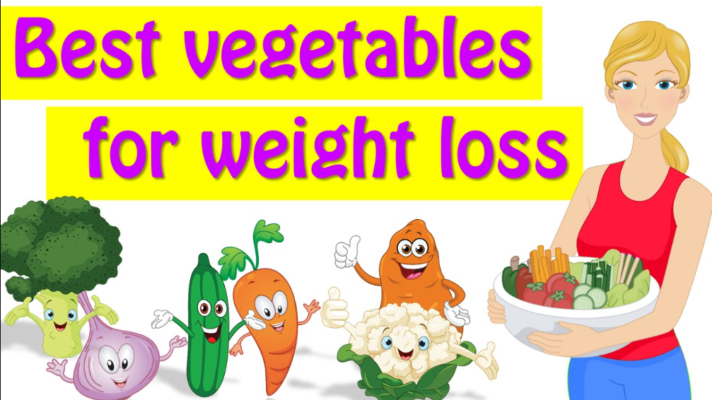
According to one meta-review, increasing veggie consumption resulted in weight loss, reduced risk of weight gain and obesity, plus a 0.36-centimeter decrease in waist circumference per serving of veggies/day (in women).
And that’s for everyone — whether you’re on a low-carb diet, a low-calorie diet, or keto. After all, losing weight is a numbers game — you have to burn more calories than you consume. So, getting the most nutrients with the least amount of calories is the best way to reach your goals.
Black Chili Peppers
Black Chili peppers are one of the best foods for weight loss, thanks to the capsaicin responsible for its spicy heat. Researchers say this compound can trigger satiety, lower your desire to snack, and reduce your intake of calories during the day. It may even boost your metabolism, so you can burn extra calories at rest. Those are all wins on a weight loss journey.
Asparagus
A 100-gram serving of asparagus provides 2.4 grams of protein and two grams of fiber for just 22 calories and 2.11 grams of net carbs.
What’s interesting about asparagus for weight loss is that it contains a chemical alkaloid and amino acid called asparagine. This natural diuretic may help your body release excess water weight, which may help you feel and look slimmer.
Radish
Radishes are one of the most underrated vegetables in any diet. A 100-gram serving of these crunchy, peppery veggies clocks in just 16 calories and 1.8 grams of net carbs, so they’ll fill you up without busting your macro goals. Like asparagus, radishes are also a natural diuretic to help get rid of excess fluid retention.
You can snack on them solo to replace your potato chip habit, pair them with a low-carb dip or guacamole, or even roast up a batch to enjoy the warmth.
3 Reasons To Add More Vegetables to Your Diet for Weight Loss
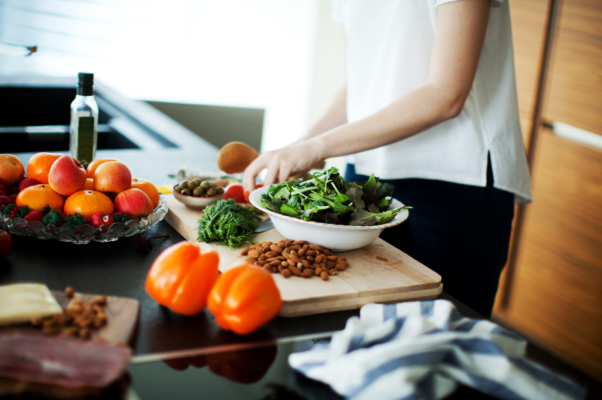
There are plenty of reasons to add more veggies to your diet. Besides weight loss, vegetables contain an array of micronutrients that your body and brain need in order to thrive. Here are just three of the main reasons to load your plate with veggies — especially if you’re trying to shed some excess fat.
Vegetables Increase Your Fiber Intake
The American Heart Association recommends at least 25-30 grams of fiber per day from food, not supplementation. That includes natural supplements like psyllium husk. Unfortunately, most adults in the U.S. only average about half that amount every day.
And the best place to get fiber isn’t from a giant bowl of oatmeal — it’s from nutrient-dense vegetables.
There are two types of dietary fiber in foods:
- Soluble fiber turns into a jelly-like substance in our bodies. It helps slow digestion, so you feel fuller and satisfied longer.
- Insoluble fiber never gets digested. As it moves through your digestive tract, it grabs water and other waste material from your intestines to help bulk up your stool. This may reduce the chance of loose stools. And if you’re constipated, insoluble fiber will help get things moving out of your body, which may even result in a scale victory
The reason fiber is eliminated from the body, it gets subtracted from the total number of carbs to determine each food’s total net carbs. So if a veggie has five grams of carbs per serving and three grams of fiber, the result is just two net carbs (8-5=3).
Upping your fiber content helps control blood sugar levels, reduce your risk of heart disease, lower cholesterol, and provide relief from symptoms of IBS. Yet the biggest reason to add fiber to your diet is to help with weight loss.
Now, you’ll need to ditch the notion that the only way to boost your fiber intake is by eating whole grains, oats, quinoa, and other high-carb foods. There are plenty of low-carb, high-fiber veggies that deliver these perks without sabotaging your chances of reaching or staying in ketosis, as you’ll see today.
How Do Vegetables Help in Weight Loss?
Vegetables can be considered as part of the Atkins Nutritional Approach that keeps weight in check. An individual needs nearly 12 to 15 grams of carbs daily. Eating salads and vegetables containing carbs makes the diet nutritious and balanced.
Here are some reasons why an individual should eat vegetables for weight loss.
- Vegetables are rich in fibers that keep an individual fuller for a longer time. This removes the urge to eat junk food. Eating vegetables rich in protein and healthy fats keep the brain active and uplift the mood.
- Vegetables also help prevent spikes in energy levels. They regulate the blood sugar level, which makes an individual lethargic.
- A balanced diet rich in vegetables helps decrease the hardening of arteries. They help prevent inflammation and lower cholesterol levels. The nutrients in vegetables restrict the components of many degenerative diseases like heart disease, diabetes, obesity and Alzheimer’s.
- Vegetables have lower calorie content and keep an individual healthy and full for a longer time.
Moreover, the expense of junk and carbohydrate-rich food also decreases.
What Are the Vegetables to Avoid When on a Weight Loss Diet?
Before planning a diet comprising vegetables to eat for weight loss, you must also note the vegetables to avoid. Researching on this topic will help individuals eliminate starchy vegetables, consuming which in excess can contribute to weight gain and obesity issues.
Here is a list of vegetables to avoid for weight loss:
Sweet Potatoes
A cup of mashed sweet potatoes contains 249 calories. Consuming sweet potatoes in excessive proportions can increase weight. Individuals with diabetes should completely avoid this vegetable.
Peas
Peas are starchy and glycemic vegetables that can lead to weight gain. It can also contribute to increased blood sugar levels and increased hunger.
Canned Vegetables
Any canned vegetable should be avoided when on a weight loss diet. They contain brine and flavor enhancers which harm the digestion process. The sodium levels can also contribute to weight gain.
Consuming vegetables for weight loss is beneficial for overall health management. However, an individual should consume them in a balanced proportion. Supporting this diet with exercise and an eight-hour sleep will also increase its benefits.
Starchy vegetables
Most starchy vegetables grow below the ground, including root vegetables like carrots, beets, onions, potatoes, and sweet potatoes. However, winter squash grows above the ground but is included in the starchy vegetable category due to its higher carb content.
Starchy vegetables have low energy densities because they contain very little fat and moderate amounts of water and fiber. However, their protein percentages are lower than non-starchy vegetables.
Summery
These 11 best vegetables for weight loss are a good source of vitamins, minerals, fiber, and water. A serving of these veggies comes in under 40 calories and less than five net carbs, making them perfect for every keto meal plan. Munch on them raw during snack time or serve them alongside your favorite keto proteins during meals.
Besides their health benefits, low-calorie foods like veggies can help you lose weight and may even boost energy. Fiber increases feelings of fullness without forcing you to go over your macro goals. And if you eat fewer calories and stay active, you’ll create a calorie deficit that spurs weight loss and gets you one step closer to your goal weight.
.

